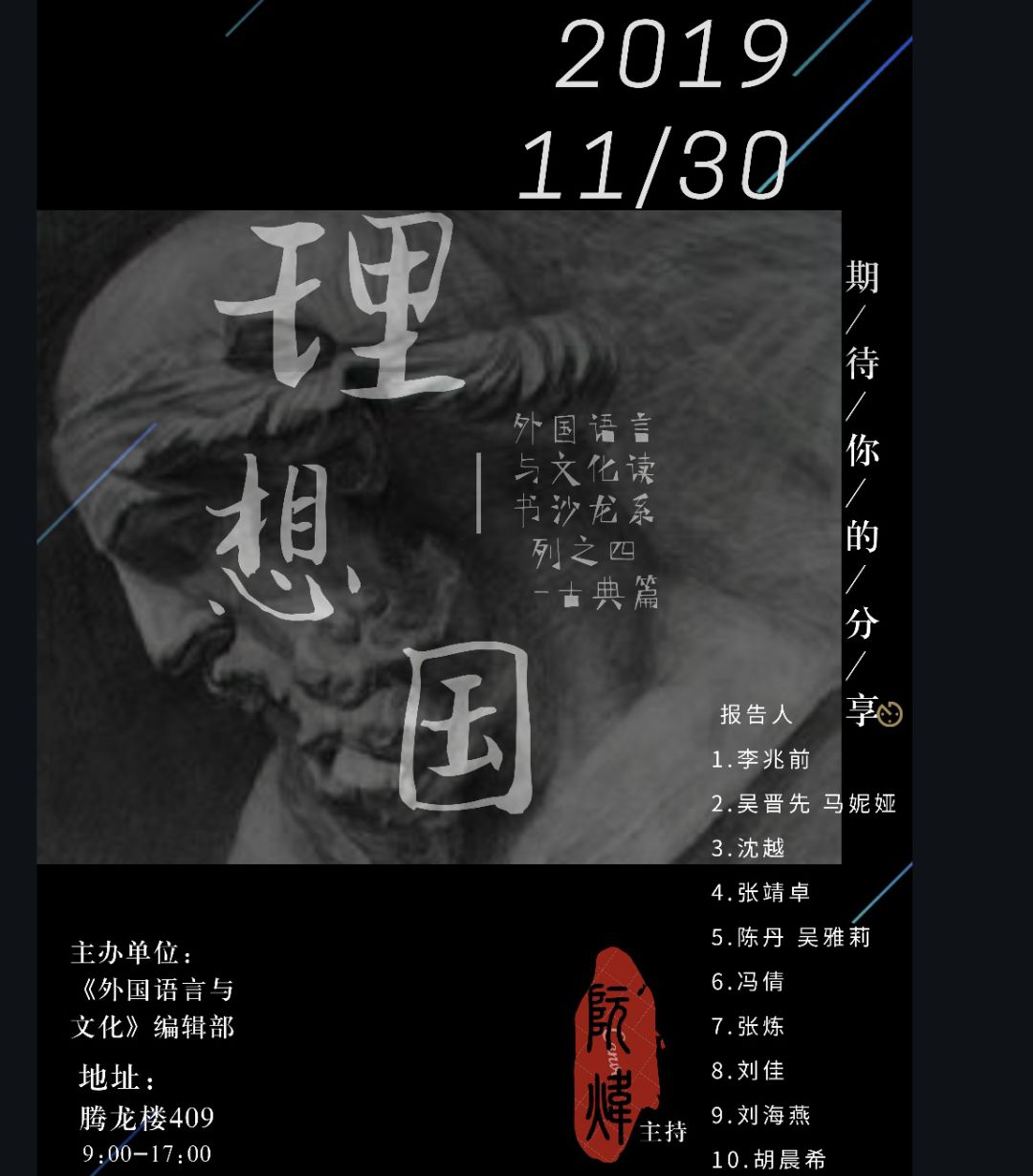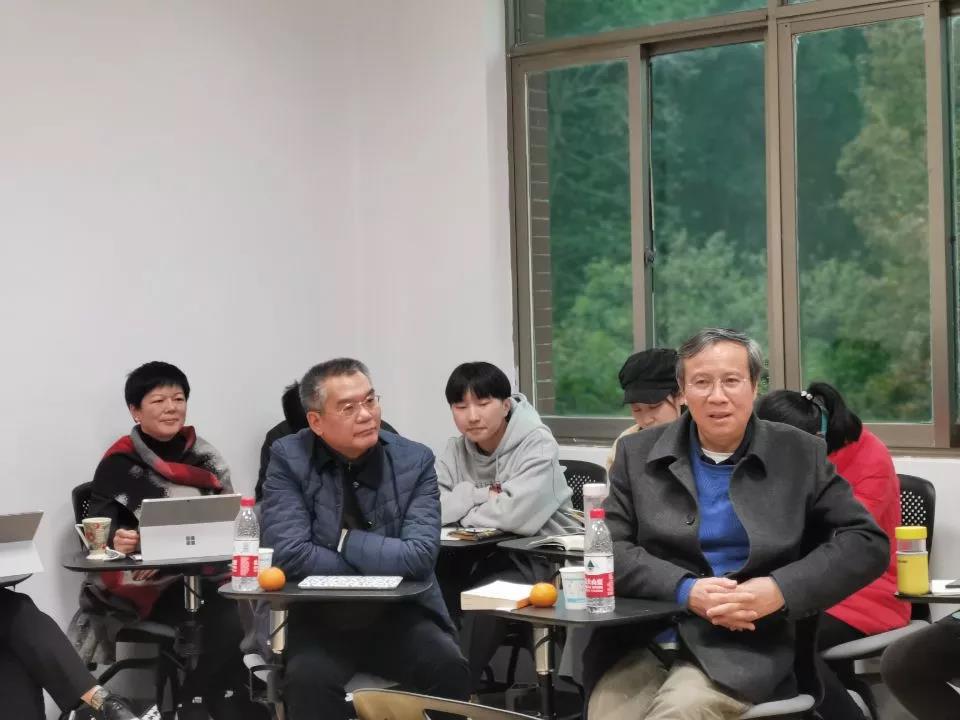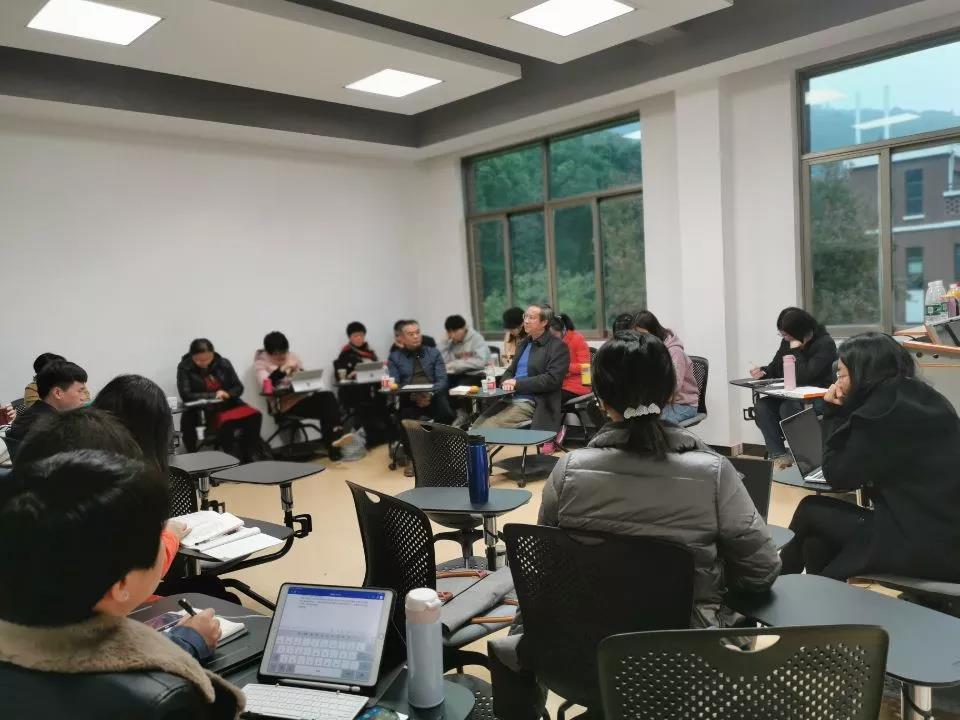Plato and the Republic
Foreign language and Culture Reading Salon 4., November 30, 2019

PLATO AND THE REPUBLIC: A report from Hu Chenxi, a Salon Participant
On November 30, the "Plato and the Republic" reading salon sponsored by Foreign Languages and Culture was held in Tenglong Building of Hunan Normal University.
The activity was presided over by teacher Ruan Wei, the editor of the editorial department of Foreign languages and Culture, and the teachers and students of the School of Foreign languages of Hunan Normal University, as well as the teachers and students of Central South University, Xiangtan University, Hunan First Normal University, Hunan Agricultural University, Hunan Institute of Finance and Economics, etc., had a heated discussion about the Republic.

At the beginning of the salon, Mr. Ruan made it clear that he would devote himself to the readability of the Republic.
He believes that the Republicis divided into ten books in order that each is provided a distinct theme which is convenient for academic discussion; at the same time, this work embodies the spirit of its time while it is still closely relatable to contemporary life.
He particularly stressed that reading is not to show off or to follow the fashion, but to learn from ancient times.
Then, combined with his life experience, teacher Li Zhaoqian put forward his own views on the issues of fairness and justice in books 1 and 2. Wu Jinxian and Manya summarized and combed the education of guardians mentioned in book 3. Spartan education and the selection of ancient Chinese officials were compared; Shen Yue, a graduate student in our college, focused on the effectiveness and leadership of education in book 4.
Zhang Jingzhuo, a sophomore in our college, analyzed the problems of preschool education and women's education involved in book 5. He had a clear train of thought and a logical point of view, which was praised by the teachers and classmates present.
In the afternoon, teacher Wu Yali continued to express her views on the women's issues discussed in book 5, questioning Plato's title of "Feminist Pioneer". Feng Qian, a graduate student of our college, discussed the cultivation of philosophers in book 6 and compared its similarities and differences with Chinese Taoism, offering a divergent and innovative perspective; Zhang Lian, a teacher at Hunan First Normal University, had some profound thoughts on the problems of mathematics education in the cultivation of philosophers in book 7.
Liu Jia, a graduate student of our college, makes a detailed analysis of the four regimes in book 8. Liu Haiyan, a teacher from Xiangtan University, expressed his thoughts and raised questions about the three parts of the soul in book 9. Hu Chenxi, a graduate student in our college, talked about Plato's criticism of poetry and the significance of the myth of Er in book 10.
Finally, teacher Ren Haiyan summarized and spoke highly of this reading activity, saying that it is not easy for everyone to get together. The wonderful report and discussion make people have a deeper understanding and perspective on Plato's thoughts as applicable for real life. Let people feel the joy and warmth of meeting friends with books in the cold winter, and look forward to the next reading salon!
